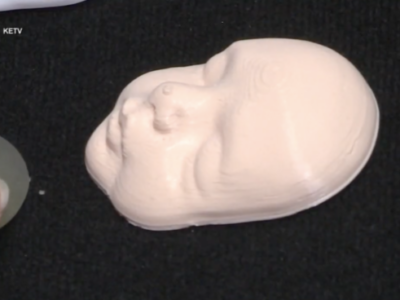
A few years ago, many of us lost someone we’d spend about a half hour with during the work week. For over three decades, Alex Trebeck beamed into our homes as the host of Jeopardy!, America’s favorite quiz show. In 2019 Alex announced that doctors diagnosed him with Stage 4 pancreatic sentence–a death sentence. He died in 2020.
During the final year of his life, the TV host raised awareness about pancreatic cancer, trying to help people catch their disease early and raise funds for research. Pancreatic cancer continues to be one of the most lethal malignancies, fatal in 88 percent of patients. It is also one of the hardest to treat. Tumors can be surgically removed, but they come back within seven to nine months in 90 percent of patients. Chemotherapy often helps extend life, like it did with Alex, but it too rarely heals it. Radiation, immunotherapy and targeted therapies also don’t work.
Now it looks like researchers have taken a huge step toward curing the disease.
“Five years ago, The New York Times writes, “a small group of cancer scientists meeting at a restaurant in a deconsecrated church hospital in Mainz, Germany, drew up an audacious plan: They would test their novel cancer vaccine against one of the most virulent forms of the disease, a cancer notorious for roaring back even in patients whose tumors had been removed.
The vaccine might not stop those relapses, some of the scientists figured. But patients were desperate. And the speed with which the disease, pancreatic cancer, often recurred could work to the scientists’ advantage: For better or worse, they would find out soon whether the vaccine helped.
On Wednesday, the scientists reported results that defied the long odds. The vaccine provoked an immune response in half of the patients treated, and those people showed no relapse of their cancer during the course of the study, a finding that outside experts described as extremely promising.
The study, published in Nature, was a landmark in the yearslong movement to make cancer vaccines tailored to the tumors of individual patients.”
The story of the vaccine seems like science ficition. CNN explained that for the “first study, doctors surgically removed the patients’ tumors and sent the tissue to a lab in Germany where scientists sequenced genetic code from the tumors and from the patients’ blood. They compared those sets of genes to find the ones that were altered in the cancer cells. After they identified the changed genes, they ran them through a computer program to let it pick the ones that would make the most effective targets.
Then they made their personalized mRNA vaccines. Patients got eight doses, which were infused into their bloodstream rather than injected into their muscles, as the Covid-19 vaccines are. That’s because researchers were trying to stimulate a slightly different part of the immune system.
“The type of immune response you want to elicit is slightly different from the type of immune response that you want to elicit against a virus, where it’s mostly antibody responses, and for cancer, you try to actually induce T-cell responses,” Balachandran said.
Blood circulates through the lymph system, where lymph nodes and lymph organs like the spleen help make T-cells.”
Following the eight “immuno” doses, as one of the researchers calls them, each of the patients received six months of chemotherapy before getting one last booster of the vaccine.
Fighting pancreatic cancer may also get a boost from AI. Harvard University reported, “An artificial intelligence tool has successfully identified people at the highest risk for pancreatic cancer up to three years before diagnosis using solely the patients’ medical records, according to new research led by investigators at Harvard Medical School and the University of Copenhagen, in collaboration with VA Boston Healthcare System, Dana-Farber Cancer Institute, and the Harvard T.H. Chan School of Public Health.
The findings, published May 8 in Nature Medicine, suggest that AI-based population screening could be valuable in finding those at elevated risk for the disease and could expedite the diagnosis of a condition found all too often at advanced stages when treatment is less effective and outcomes are dismal, the researchers said.”
Both tools are still in trial phases, but things are getting better out there.










Will take when applicable anytime